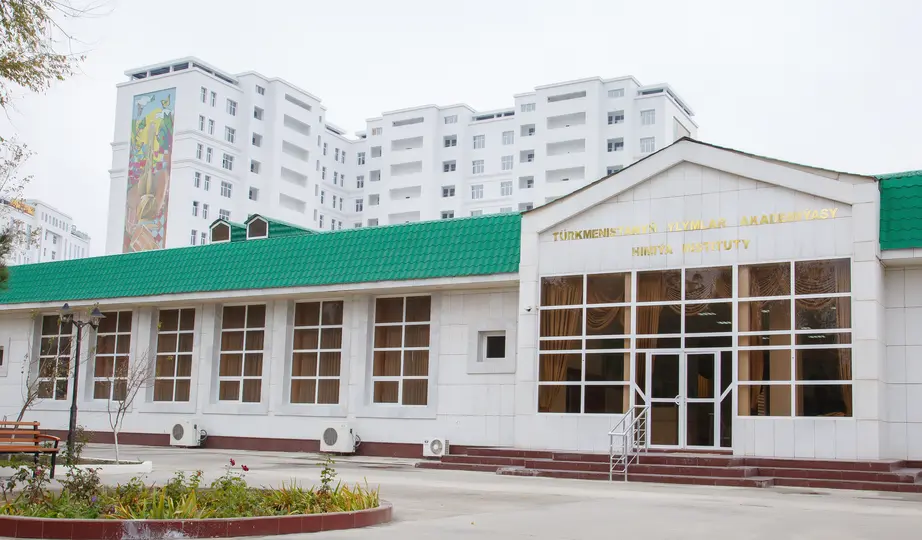
On June 12, 2009, by Resolution No. 10458 of the President of Turkmenistan, the Institute of Chemistry was transferred to the structure of the Academy of Sciences of Turkmenistan. The Institute of Chemistry of the Academy of Sciences of Turkmenistan is the only institute in the country conducting research work in chemistry and chemical technology.
The main objectives of the Institute of Chemistry are: development of scientific foundations for the integrated processing of mineral, hydromineral and hydrocarbon raw materials of Turkmenistan; development of new and improvement of existing chemical production technologies; introduction of innovative technologies into production; creation of the possibility of producing products competitive in the world market based on local raw materials - hydrocarbons, minerals and hydrominerals.
The main objectives and areas of activity of the institute:
1. Improvement of oil and gas processing technology, development of scientific foundations for the production of products competitive in the world market based on technological and innovative solutions;
2. Synthesis of organic compounds and biologically active substances for use in agriculture and medicine;
3. Development of new technologies for complex processing of mineral and hydromineral raw materials, including:
- development of the scientific basis for obtaining compounds of rare elements (boron, lithium, strontium, cesium, rubidium, etc.);
- development and introduction into production of technologies for complex processing of iodine-bromine waters for the production of iodine, bromine, trace elements and salts.
4. Treatment and purification of waste and mineral waters;
5. Study on a scientific basis the physical and chemical properties of phosphorite ores of Turkmenistan, and development of technology for their enrichment;
6. Development of technologies for the production of mineral fertilizers, ameliorants, biostimulants from local raw materials (phosphorites, oxidized brown coal, sulfur);
7. Study of environmental problems of enterprises, development of environmental passports, regulatory documents regulating the level of harmful substances that pollute air and water;
8. Development of technological regulations for production workshops and enterprises, as well as standards for the consumption of raw materials, development of standards for the consumption of energy resources and the development of other documentation;
9. Carrying out physical and chemical analysis of chemical substances;
10. Development of feasibility studies of newly developed technologies, enterprises, analysis of proposals, projects, feasibility studies presented by local and foreign companies.